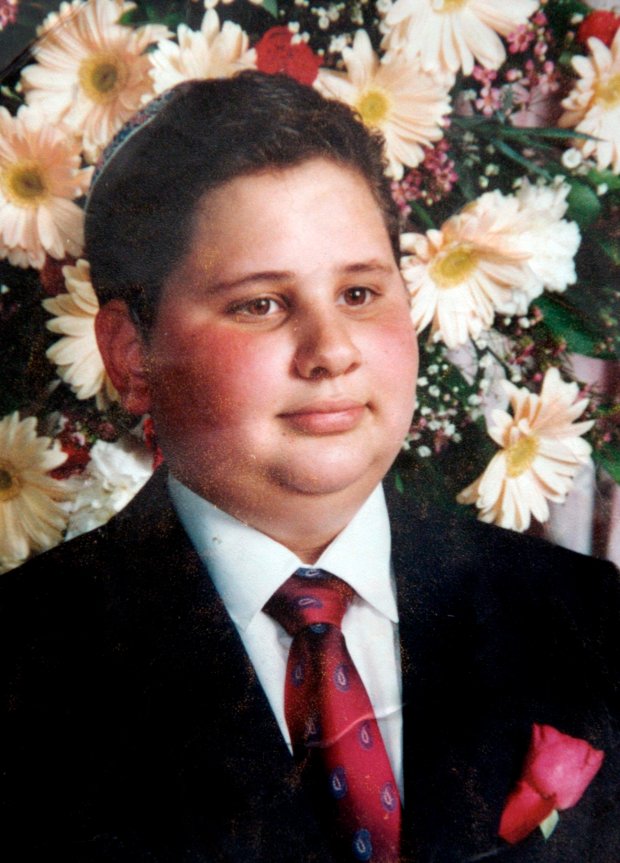It is a truth universally acknowledged that with great tragedies come numerous lawsuits, and the atrocities of Oct. 7 are no different. After Hamas terrorists breached an internationally recognized border, massacring more than 1,000 innocent civilians and kidnapping and transporting hundreds more to Gaza, lawyers stateside filed a suit on behalf of nine of the victims, focusing on a handful of U.S.-based groups they allege violate both the Anti-Terrorism Act and the Alien Tort Statute by supporting and working on behalf of Hamas.
We have full trust in the American justice system to adjudicate this case and others like it swiftly and correctly. But representing the family of the first American killed by Hamas, we believe that the specific details of our case — one that predates the recent bloodshed by more than a decade — matter greatly and that anyone who wishes to understand the complex and intricate landscape of pro-Hamas advocacy on American soil would benefit from taking a moment and reflecting on the particular facts of our case.
David Boim, an American, was 17 when he was standing in May 1996 in a bus station outside Jerusalem. Two Hamas terrorists, driving by in search of defenseless targets, spotted David and his friends and opened fire. David was hit in the head and died shortly thereafter. His parents, Joyce and Stanley Boim, sued several U.S.-based nonprofits they claimed had provided “material support” to the terrorist group. In 2004, the Boims prevailed and were awarded $156 million in damages.
The debtors, sadly, quickly disbanded before meeting their obligations. And, as we note in a new lawsuit we filed in an effort to enforce the judgment, they’ve simply reconstituted, with the same entities operating under a new name. As our lawsuit argues, our judgment debtor, the Islamic Association of Palestine, has recast itself as American Muslims for Palestine, with the same leadership, mission, speakers, donors and operating methods.
Our suit, in other words, doesn’t necessarily seek, like the more recent one, to show that AMP is providing material support for Hamas. And while we’ve assembled helpful evidence of indirect support in the form of providing a platform for organizations such as Viva Palestina, for example, to raise funds that are then turned over to Hamas, establishing the material support element has traditionally been a burden difficult to meet. Thankfully, then, all our lawsuit must do is prove a much more obvious assertion, namely that the people already found responsible by an American court 20 years ago are the very same people running differently named but otherwise identical organizations today.
This, alas, will require some effort, as the defendants are adept at obfuscation. The AMP, for example, is operating under the official corporate name of AJP Education Foundation, a corporate change made several years ago, ostensibly to preserve the organization’s status as a 501(c)(3) tax-exempt organization. It’s worth noting that the organization has failed to respect corporate formalities and that AJP, under the AMP name, has engaged in activities that compromise its tax-exempt status, such as lobbying and campaigning for political candidates.
An even more difficult defendant to bring to justice is Students for Justice in Palestine. As the recent lawsuit acknowledges, there is no entity named National SJP; the complaint calls it an unincorporated association founded by AMP, an allegation that AMP denies. This, too, is likely to be a legal battle with uncertain outcomes.
Which brings us back to the Boims. The recent suit, it’s safe to assume, isn’t expecting to collect an actual, sizable judgment from the defendants. Rather, it hopes to use legal procedures to shed light on the atrocities of Oct. 7, reminding an American public poised to support the Palestinian cause of Hamas’ brutalities. The Boims have a very different goal. They’ve already had their day in court and proved the veracity of their allegations. All they’re asking for right now is that justice be served and that those who’ve been brazenly flouting the court’s decision for decades finally be held accountable.
It is tempting, with so much reported around Israel and Palestine in the press, to glaze over these important distinctions and decide that an intricate lawsuit with many details and distinctions is too much to follow or care about. But as our opponents have already begun flinging about broad and baseless accusations of racism, Islamophobia and every other benighted social ill, we should remind ourselves that if the devil is in the details, so, thankfully, are the angels.
Any American yearning for a modicum of fairness and justice should know that there’s a case that will determine whether or not we take our courts seriously. The Boims had already proved their case; all they’re asking for right now is to stop their debtors from resorting to crafty tricks in order to flee responsibility and avoid justice.
The Israeli-Palestinian conflict may be complicated, but the Boims’ case couldn’t be simpler, more straightforward or more deserving of our support.
Daniel I. Schlessinger is representing Stanley and Joyce Boim in Boim v. American Muslims for Palestine.
Submit a letter, of no more than 400 words, to the editor here or email letters@chicagotribune.com.



